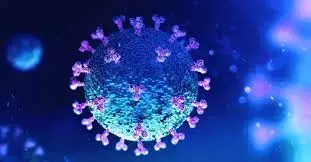- Home
- Medical news & Guidelines
- Anesthesiology
- Cardiology and CTVS
- Critical Care
- Dentistry
- Dermatology
- Diabetes and Endocrinology
- ENT
- Gastroenterology
- Medicine
- Nephrology
- Neurology
- Obstretics-Gynaecology
- Oncology
- Ophthalmology
- Orthopaedics
- Pediatrics-Neonatology
- Psychiatry
- Pulmonology
- Radiology
- Surgery
- Urology
- Laboratory Medicine
- Diet
- Nursing
- Paramedical
- Physiotherapy
- Health news
- Fact Check
- Bone Health Fact Check
- Brain Health Fact Check
- Cancer Related Fact Check
- Child Care Fact Check
- Dental and oral health fact check
- Diabetes and metabolic health fact check
- Diet and Nutrition Fact Check
- Eye and ENT Care Fact Check
- Fitness fact check
- Gut health fact check
- Heart health fact check
- Kidney health fact check
- Medical education fact check
- Men's health fact check
- Respiratory fact check
- Skin and hair care fact check
- Vaccine and Immunization fact check
- Women's health fact check
- AYUSH
- State News
- Andaman and Nicobar Islands
- Andhra Pradesh
- Arunachal Pradesh
- Assam
- Bihar
- Chandigarh
- Chattisgarh
- Dadra and Nagar Haveli
- Daman and Diu
- Delhi
- Goa
- Gujarat
- Haryana
- Himachal Pradesh
- Jammu & Kashmir
- Jharkhand
- Karnataka
- Kerala
- Ladakh
- Lakshadweep
- Madhya Pradesh
- Maharashtra
- Manipur
- Meghalaya
- Mizoram
- Nagaland
- Odisha
- Puducherry
- Punjab
- Rajasthan
- Sikkim
- Tamil Nadu
- Telangana
- Tripura
- Uttar Pradesh
- Uttrakhand
- West Bengal
- Medical Education
- Industry
Antibody cocktail reduces viral load in COVID 19 patients with high viral load: NEJM

USA: REGN-COV2 antibody cocktail helped in reducing viral load in COVID-19 patients, revealed preliminary findings from a recent study in the New England Journal of Medicine. According to the small study, the greater effect was seen in patients who had a higher viral load at baseline or whose immune response has not been initiated yet.
Recent data has suggested high viral loads to be the reason for death and complications from coronavirus disease 2019 (Covid-19). Daniel M. Weinreich, professor of ecology and evolutionary biology at Brown University, and colleagues in the study described results of an initial analysis involving 275 symptomatic patients from their ongoing phase 1–3 trial involving outpatients with confirmed SARS-CoV-2 infection.
The researchers investigated two fully human, neutralizing monoclonal antibodies against severe acute respiratory syndrome coronavirus 2 (SARS-CoV-2) spike protein, used in a combined cocktail (REGN-COV2) for reducing the risk of the emergence of treatment-resistant mutant virus. The patients were randomly assigned in the ratio 1:1 to receive placebo, 2.4 g of REGN-COV2, or 8.0 g of REGN-COV2. They cwere prospectively characterized at baseline for endogenous immune response against SARS-CoV-2 (serum antibody–positive or serum antibody–negative).
Key end points included the time-weighted average change in viral load from baseline (day 1) through day 7 and the percentage of patients with at least one Covid-19–related medically attended visit through day 29. Safety was assessed in all patients.
Key findings of the study include:
- The least-squares mean difference (combined REGN-COV2 dose groups vs. placebo group) in the time-weighted average change in viral load from day 1 through day 7 was −0.56 log10 copies per milliliter among patients who were serum antibody–negative at baseline and −0.41 log10copies per milliliter in the overall trial population.
- In the overall trial population, 6% of the patients in the placebo group and 3% of the patients in the combined REGN-COV2 dose groups reported at least one medically attended visit; among patients who were serum antibody–negative at baseline, the corresponding percentages were 15% and 6%.
- The percentages of patients with hypersensitivity reactions, infusion-related reactions, and other adverse events were similar in the combined REGN-COV2 dose groups and the placebo group.
"In this interim analysis, the REGN-COV2 antibody cocktail reduced viral load, with a greater effect in patients whose immune response had not yet been initiated or who had a high viral load at baseline. Safety outcomes were similar in the combined REGN-COV2 dose groups and the placebo group," wrote the authors.
"Further studies, including the continuing phase 3 portion of this trial, are needed to confirm these effects," they concluded.
The study titled, "REGN-COV2, a Neutralizing Antibody Cocktail, in Outpatients with Covid-19," is published in the New England Journal of Medicine.
DOI: https://www.nejm.org/doi/full/10.1056/NEJMoa2035002
Dr Kamal Kant Kohli-MBBS, DTCD- a chest specialist with more than 30 years of practice and a flair for writing clinical articles, Dr Kamal Kant Kohli joined Medical Dialogues as a Chief Editor of Medical News. Besides writing articles, as an editor, he proofreads and verifies all the medical content published on Medical Dialogues including those coming from journals, studies,medical conferences,guidelines etc. Email: drkohli@medicaldialogues.in. Contact no. 011-43720751


